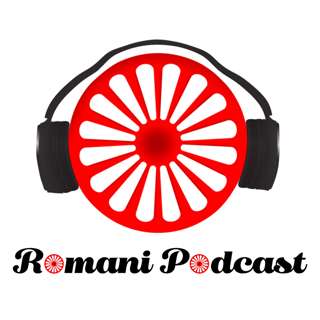
72.1 Philippa Gregory Interview
Philippa has written novels set in several different historical periods, especially the Tudor period. We discussed the period around the Glorious Revolution 1688 when the Prince of Orange invaded England from Holland and replaced James II as king, and the Battle of Sedgemoor 1685 three years before.Some of Philippa's novels have won awards and have been adapted into television dramas. The most successful of her novels has been The Other Boleyn Girl, published in 2001. Philippa has also published a series of books about the Plantagenets, the ruling houses that preceded the Tudors, and the Wars of the Roses.Her new book is called Dawnlands, the third in a series named Fairmile. Hosted on Acast. See acast.com/privacy for more information.
11 Marras 202218min
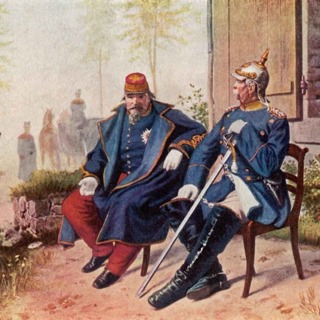
71.2 Franco-Prussian War 1870-71
For centuries, Europe’s German centre had been politically fragmented and weak. The continent had been dominated by states on the periphery, whose interest was to maintain the power vacuum at the centre. Now, however, for the first time, the Germans were united under the leadership of Otto von Bismarck and launched a major invasion into France, which ended up destroying the balance of power on the continent.www.patreon.com/historyeuropewww.historyeurope.netMusic composed by Frederic Chopin - Mazurkas in C sharp minor, Poloniase nr 7 and Predule nr 10Picture - Bismarck and Napoleon III Hosted on Acast. See acast.com/privacy for more information.
4 Marras 202227min
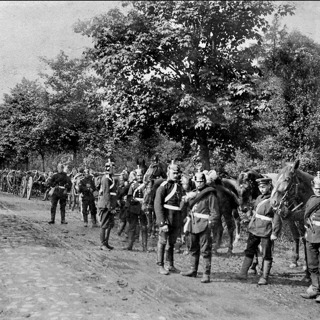
71.1 Franco-Prussian War 1870-71 - Background
Following Prussia's victory at Königgrätz in 1866, the North German Confederation became an instrument for Prussian dominance. All northern German states not directly annexed by Prussia were put in the new Confederation in which Berlin assumed control of their foreign and military affairs, and most of their internal ones as well. A solid block of Prussian territory stretched now between France and Belgium in the west to Russian Lithuania in the east.Tensions rise between Paris and Berlin, and Napoleon III of France blunders into a war against Germany for which he is not preparedwww.patreon.com/historyeuropewww.historyeurope.netMusic composed by Brahms Symphony nr 3, parts of the 2nd and 3rd movementsPicture - German troops at Torcy, in September 1870 Hosted on Acast. See acast.com/privacy for more information.
28 Loka 202223min
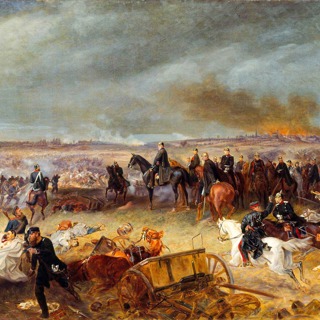
70.2 Battle of Königgrätz 1866
The Austro-Prussian War of 1866 was brief, yet its consequences were profound. It was the culminating event in a rivalry that began with the rise of the house of Brandenburg-Prussia, most notably Frederick the Great’s unprovoked attack upon the Habsburg province of Silesia in 1740. From that time Austria and Prussia were involved in a long struggle for supremacy in Germany.In 1866 Prussian armies invades Saxony and then the Austrian Empire with the main battle occurring on 3rd July 1866 at Königgrätz with immense armies on both sides.www.patreon.com/historyeuropewww.historyeurope.netMusic composed by Johannes Brahms: Symphony No. 1 in C Minor, movements 3 and 4. Also Waltz nr. 15 in A flat major. Courtesy of musopen.org Hosted on Acast. See acast.com/privacy for more information.
30 Syys 202233min
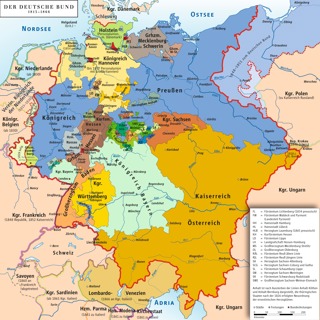
70.1 Battle of Königgrätz 1866 - Background
Any list of decisive battles of European history would be incomplete without a battle which occurred on 3 July 1866 near the town of Königgrätz, in the north of the today’s Czech Republic.The victorious allies of the Schleswig War of 1864, the Austrian Empire and the Kingdom of Prussia, soon after fall out with each other and go to war.Austria faces great challenges - in the centre of Europe and facing in two directions – north and west to Germany, and south and east to a number of various ethnicities in eastern Europe and the Balkanswww.patreon.com/historyeuropewww.historyeurope.netMusic composed by Camille Saint-saens: The Carnival of the Animals - Aquarium and SwanPicture - Map of Central Europe Hosted on Acast. See acast.com/privacy for more information.
23 Syys 202220min
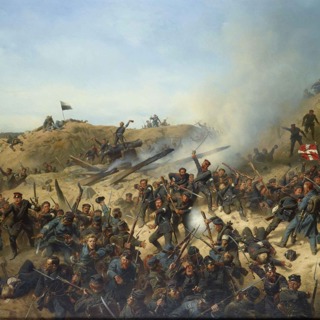
69.2 Schleswig War of 1864
When in November 1863 King Frederick VII of Denmark died, a dispute arose over who had a legitimate claim to rule over the Duchies of Schleswig and Holstein. Otto von Bismarck saw this as a great opportunity to increase Prussian power in the region and decided, together with the Austrians, to invade Denmark.The key battle in the war was the siege of Dybbøl in April 1864This month, August 2022, I'm doing a cycling challenge to raise money for Brain Tumour Research. More info at: www.justgiving.com/fundraising/carl-rylett-cycle274www.patreon.com/historyeuropewww.historyeurope.netMusic composed by Anton Bruckner (Erinnerung) and Sergei Rachmaninoff (Preludes, number 10, Lento in B minor)Picture - Siege of Dybbol Hosted on Acast. See acast.com/privacy for more information.
26 Elo 202223min
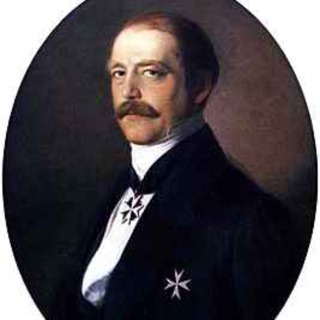
69.1 Schleswig War of 1864 - Background
A border dispute between the German Confederation and the Kingdom of Denmark in the regions of Schleswig and Holstein breaks out into an inconclusive war in 1848-1850, and tensions remain into the 1860's.Meanwhile, a common culture was developing across the German population of Europe, with the literary works of Goethe and Schiller, and philosophers Kant and Hegel. On the political scene, Otto von Bismarck rises to power as the Prussian chief minister. He urges the need for the king’s military reforms, famously stating that the great questions of the time would not be resolved by speeches or parliamentary votes but by ‘iron and blood’.This month, August 2022, I'm doing a cycling challenge to raise money for Brain Tumour Research. More info at: www.justgiving.com/fundraising/carl-rylett-cycle274www.patreon.com/historyeuropewww.historyeurope.netMusic composed by Edvard Grieg (Peer Gynt Suite - Aase's Death, Anitra's Dance)Picture - Otto von Bismarck Hosted on Acast. See acast.com/privacy for more information.
19 Elo 202223min
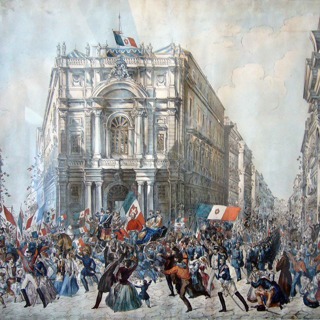
68.2 War of Italian Unification
Napoleon III of France and Cavour, chief minister of Piedmont come to an agreement to try to remove Austrian influence from the Italian peninsula, and provoke Vienna into war. One of the largest battles was at Solferino where there were three monarchs - Franz Joseph of Austria, Victor Emanuel of Piedmont and Napoleon III. The ensuing conflict lasted until 1861 when finally emerged the brand new nation of Italywww.patreon.com/historyeuropewww.historyeurope.netMusic composed by Giuseppe Verdi - Overture, Iphigenia In Aulis; La Traviata - Conclusion - Ah, fors' e lui. Courtesy of musopen.org.Picture - Entry of Garibaldi to Napoli, by Franz Wenzel Schwarz Hosted on Acast. See acast.com/privacy for more information.
29 Heinä 202233min






















